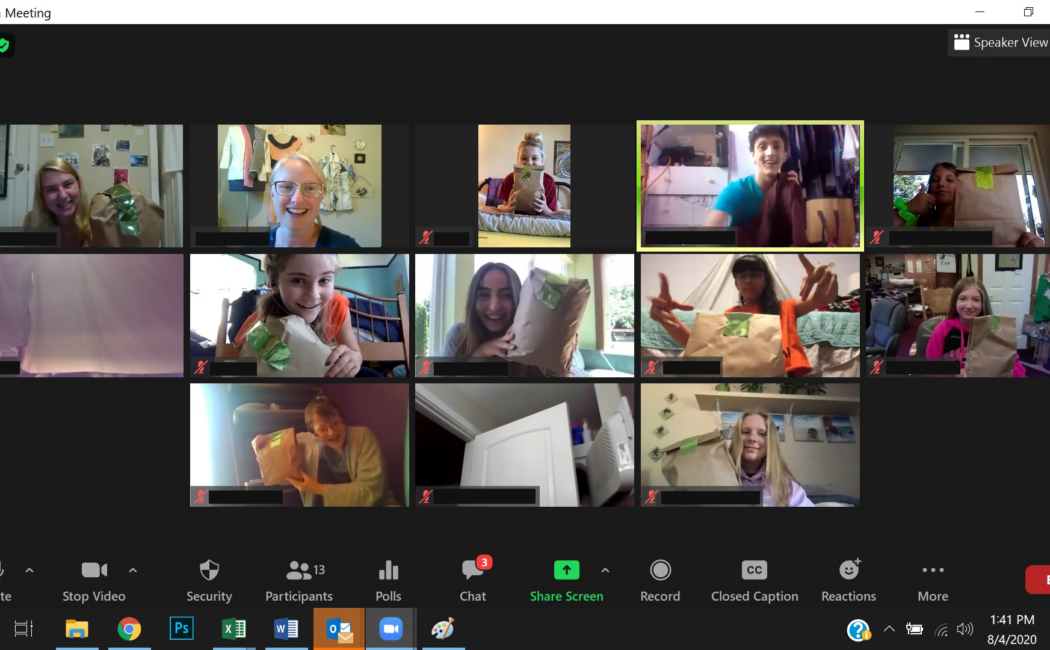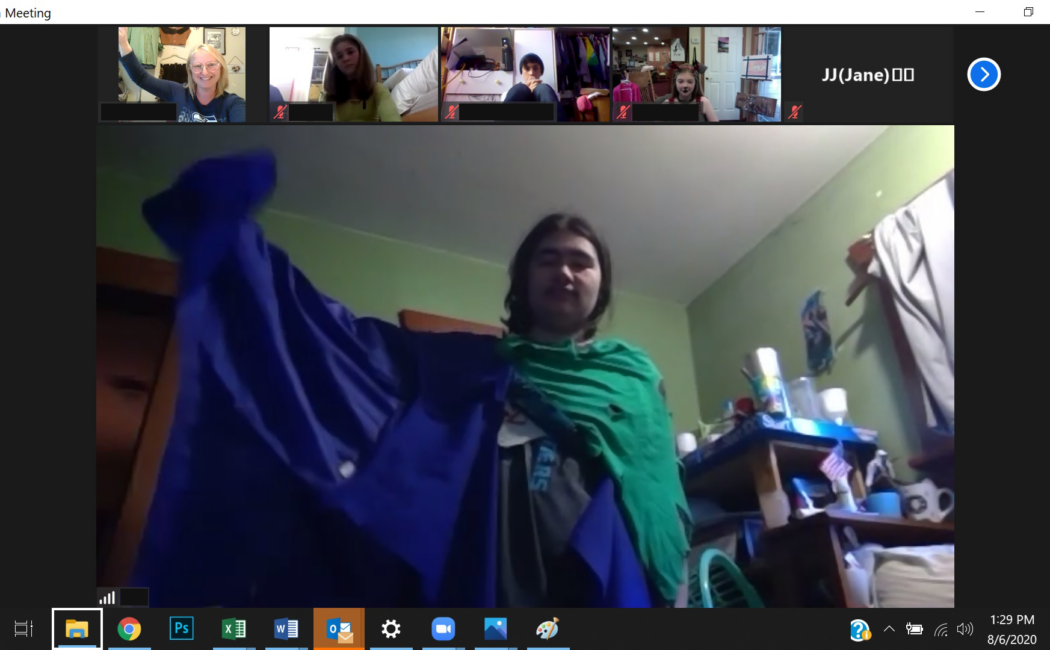
Community
13
Local Online Learning Adapts For Youth Who Don’t Want To Feel Alone
‘I just don’t like feeling alone.’
The youth Choreographer’s Workshop at Tacoma Arts Live looked a lot different this summer. Gathering on screen via Zoom, instead of in a dance studio, each student rehearsed their routine in their own individual square with their sound settings on mute. Whenever a classmate had a question or needed ideas for a new step, they would turn their microphone on to ask for help, and the rest of the group would come back to their screens and offer support.
Instructor Katie Lappier said this “open studio” format came about through feedback from the students. “I originally thought they would all want to be in break–out rooms since they were creating their own individual choreography, but they said they liked the feeling of being all together. I remember one student saying, ‘I just don’t like feeling alone.’” Katie adapted by eliminating the breakout rooms and keeping everyone together in the main room the whole time. “As adults, it’s important that we listen to the students’ needs and not always think we know what’s going to work best for them. Our goal for all our camps this summer was for kids to build relationships with each other, and it was really exciting to see the bond this group was able to build in an online space.”
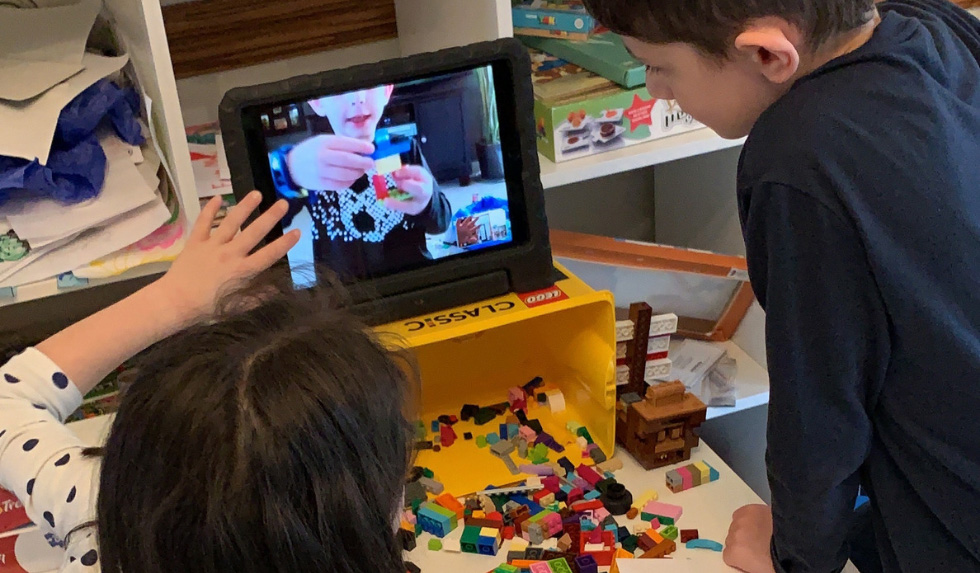
Students work together on a building project during a recent Snapology class
“Even if they don’t show up every time, we want to be available consistently, so they know they can count on us, and we’ll be there for them when they need us.”
Listening to students and adapting to meet their needs is one lesson Expanded Learning Opportunity providers like Tacoma Arts Live learned as they shifted to online platforms for their programs this summer. Antonio Maclemore from Tacoma Urban League’s Male Involvement Program and Miya Barnes from Snapology also moved their programs online, learning more about supporting student engagement in a virtual space.
These are some recent takeaways for these local providers:
Consistency is Key
“Young people thrive in consistent structure; they need to know what to expect and when they can engage with us.”
With so many variables at play for students participating through an online platform, Antonio and his team recognized student attendance in Tacoma Urban League’s Male Involvement Program was more sporadic than their in-person sessions. Even if it was only one or two kids that logged on, they always kept their schedule and took advantage of the smaller group size to deepen conversation.
“Even if they don’t show up every time, we want to be available consistently, so they know they can count on us, and we’ll be there for them when they need us.”
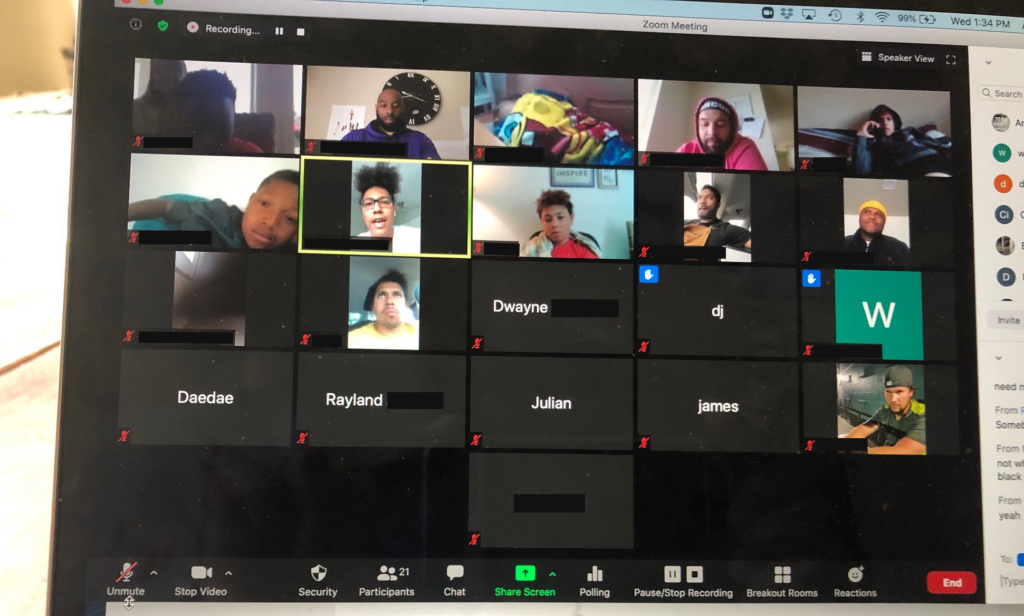
Antonio Maclemore and his team of mentors from the Male Involvement Program moved their weekly meet ups with students to Zoom during the Spring and Summer
“Virtual classes are not going away any time soon, so if we want to help our students grow, we have to figure out how to support social development.”
Class Size Matters
“In thinking how we can make our classes meaningful for students, it’s important to consider the group size.”
For her Costume Design class at Tacoma Arts Live, Katie said they had 12 participants total. 10 students, 1 intern, and then her as the instructor. She said 12 was about the maximum she would want for that particular class, but admitted that the optimal size varies depending on the program.
“We just want to ensure it’s not too large for everyone to be able to be involved and interact effectively with the group and the instructor.”
Create Opportunities for Social Interaction
“Virtual classes are not going away any time soon, so if we want to help our students grow, we have to figure out how to support social development.”
Miya and her team at Snapology are designing new classes like Digital Escape where students will have to work together to solve problems and complete various challenges to “escape” from the digital room they are in.
“We want to help students learn teamwork, communications, and conflict resolution skills so we’re creating programs that get them talking and interacting with each other and not just watching and listening to the instructor.”
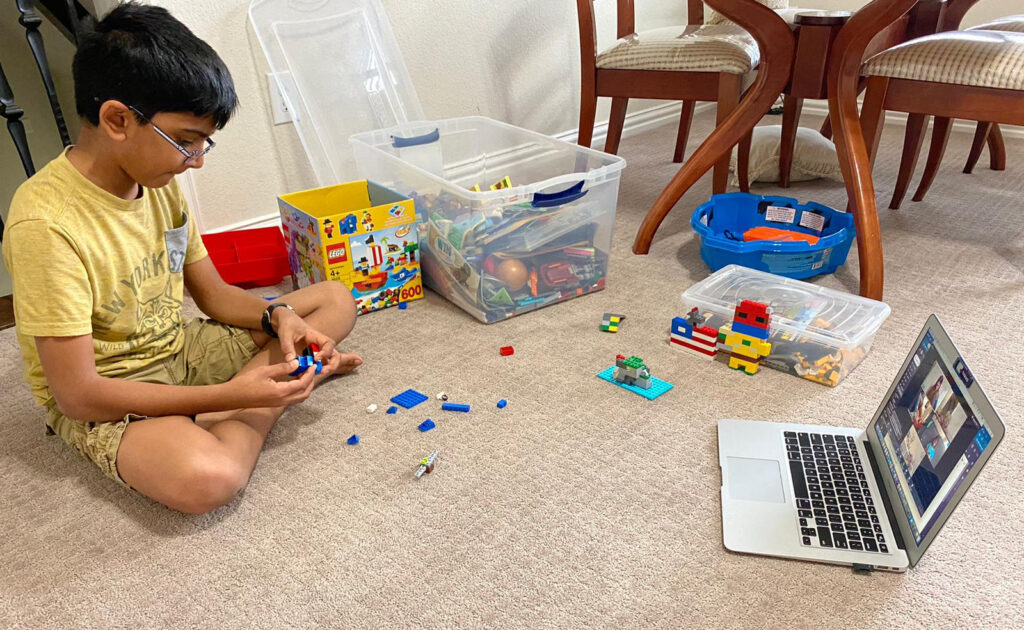
Student working on a building challenge during a recent online class with Snapology
“If we really want engagement, we have to find some ways to connect outside of the virtual model.”
Plan for Various Devices
“Online platforms like Zoom look different on a phone than on a laptop, or a tablet. What you see on your screen may not be what the students are seeing on theirs.”
Katie and other instructors for Tacoma Arts Live summer camps performed practice sessions on different devices so they could see what students were seeing and learn how to address issues on different platforms.
“We want students to be able to have a quality experience no matter which device they are using.”
Incorporate an In-Person Component
“If we really want engagement, we have to find some ways to connect outside of the virtual model.”
One way Antonio and his team accomplished this was by dropping off care packs with snacks, t-shirts, paper, pens and other supplies to each participants home. They also gave each student seeds, soil, and a container to grow a plant in. Then each week when they checked in students were able to report on how their plant was progressing.
“We always saw an increase in attendance after the home visits, and the plant project really increased engagement as well. We always need to be mindful of respecting boundaries, but when young people see us come to their space there is something special that happens.”
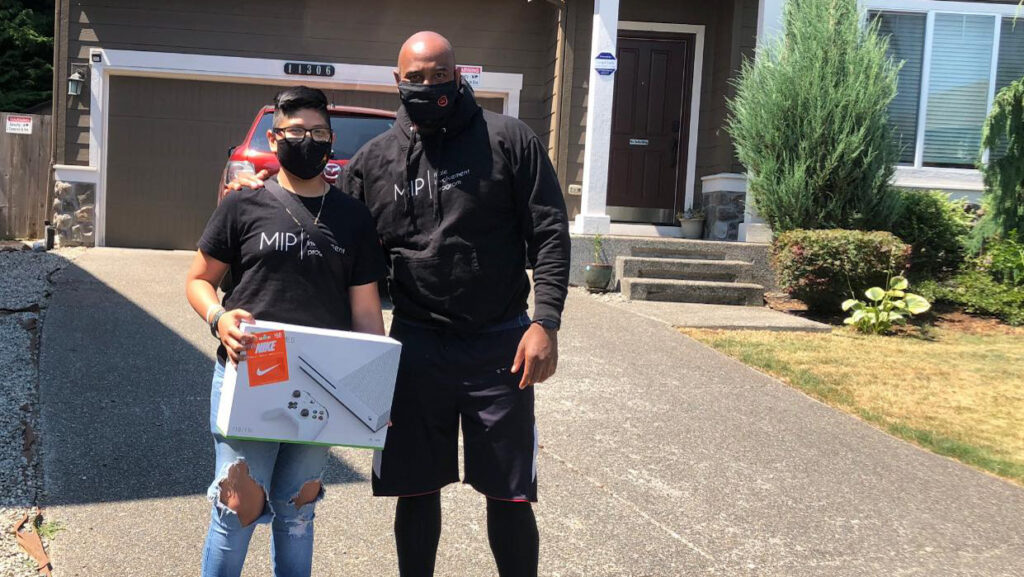
Antonio Maclemore and his team from Tacoma Urban League’s Male Involvement Program made home visits to each of the youth in their program. This teen was awarded an X-Box for attending every online session throughout the Spring & Summer
Katie Lappier said in planning their summer programming at Tacoma Arts Live, the top priority was to create opportunities for kids to build relationships with each other. Seeing the way that happened in her choreography class and others they hosted was a win. “It was really exciting to see the bonds the students were able to build in the online space. ”
Further Reading:
COVID-19 ELO & Childcare Response Page – School’s Out Washington
Building Positive Conditions for Learning at Home: Strategies and Resources for Families and Caregivers – American Institute for Research

